Logline
Director
Rusudan Gaprindashvili is a Georgian filmmaker based in Germany. With a background spanning visual and performing arts, media management, and film production, her practice is shaped by both formal training and a sensitivity to the poetics of image and gesture. Her most recent short film, Shards, was awarded the Promotional Prize at the Oberhausen Short Film Festival.
Director
Rusudan Gaprindashvili is a Georgian filmmaker based in Germany. With a background spanning visual and performing arts, media management, and film production, her practice is shaped by both formal training and a sensitivity to the poetics of image and gesture. Her most recent short film, Shards, was awarded the Promotional Prize at the Oberhausen Short Film Festival.
In Trusted Company
In Trusted CompanyThe making of How to Talk to Lydia? was shaped by a circle of trusted collaborators — filmmakers, friends, and companions whose shared vision and care carried the project forward.
In Trusted Company
In Trusted CompanyThe making of How to Talk to Lydia? was shaped by a circle of trusted collaborators — filmmakers, friends, and companions whose shared vision and care carried the project forward.
In Trusted Company
In Trusted Company
The making of How to Talk to Lydia? was shaped by a circle of trusted collaborators — filmmakers, friends, and companions whose shared vision and care carried the project forward.
For Ruso, bringing together the right people for this deeply personal film was an act of both care and creative instinct. She sought not just collaborators, but kindred spirits – individuals whose artistic language resonated with her own, and with whom a shared space of trust, imagination, and clarity could emerge. What unfolded was more than a production team; it was a vibrant and generative collective, a constellation of voices that shaped and elevated the film at every stage.
Filmmakers like Olga Chernykh and Dea Tcholokava were not only essential to the process – they became close companions along the way, their presence igniting a dialogue where storytelling deepened and formal boundaries became more fluid. Anna Dziapshipa brought with her a quiet gravity, a sense for memory and identity that infused the project with additional resonance. The cinematographer, Goga Devdariani, has that rare gift: the ability to capture on camera what the director holds in mind – to turn vision into movement, light, and tone. Anyone who has witnessed his work, here or in Taming the Garden, knows the poetry that can live in an image. In the editing process, Derek shaped the material with the hand of a painter, using rhythm, contrast, and silence as if they were brushstrokes – giving the film not just form, but soul.
This was a process marked by trust and reciprocity, where ideas were shared freely and refined collectively. In this space, Ruso was able to translate her inner vision into a film that bears the fingerprints of many, while remaining deeply and unmistakably her own.
For Ruso, bringing together the right people for this deeply personal film was an act of both care and creative instinct. She sought not just collaborators, but kindred spirits – individuals whose artistic language resonated with her own, and with whom a shared space of trust, imagination, and clarity could emerge. What unfolded was more than a production team; it was a vibrant and generative collective, a constellation of voices that shaped and elevated the film at every stage.
Filmmakers like Olga Chernykh and Dea Tcholokava were not only essential to the process – they became close companions along the way, their presence igniting a dialogue where storytelling deepened and formal boundaries became more fluid. Anna Dziapshipa brought with her a quiet gravity, a sense for memory and identity that infused the project with additional resonance. The cinematographer, Goga Devdariani, has that rare gift: the ability to capture on camera what the director holds in mind – to turn vision into movement, light, and tone. Anyone who has witnessed his work, here or in Taming the Garden, knows the poetry that can live in an image. In the editing process, Derek shaped the material with the hand of a painter, using rhythm, contrast, and silence as if they were brushstrokes – giving the film not just form, but soul.
This was a process marked by trust and reciprocity, where ideas were shared freely and refined collectively. In this space, Ruso was able to translate her inner vision into a film that bears the fingerprints of many, while remaining deeply and unmistakably her own.
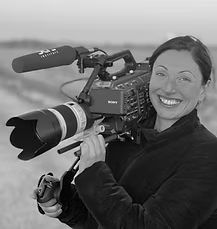
Rusudan Gaprindashvili
Director
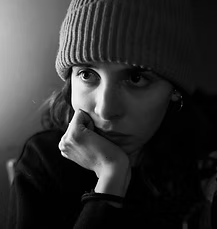
Dea Tcholokava
Sound
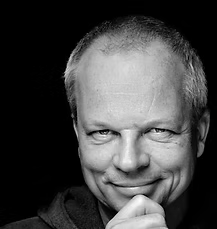
Hans Gralke
Producer

Goga Devdariani
DoP
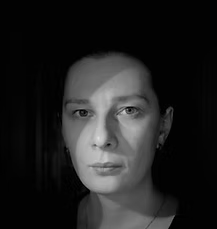
Anna Dziapshipa
Co-Producer
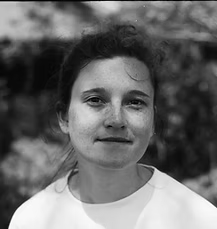
Olga Chernykh
Camera Assistant

Leo Roig
Sound

Tamta Khalvashi
Research

Derek Howard
Editor

André Klar
Sound

Ruso Gaprindashvili
Director

Dea Tcholokava
Sound

Hans Gralke
Producer

Goga Devdariani
DoP

Anna Dziapshipa
Co-Producer

Olga Chernykh
Camera Assistant

Leo Roig
Sound

Tamta Khalvashi
Research

Derek Howard
Editor

Ruso Gaprindashvili
Director

Dea
Tcholokava
Sound

Goga Devdariani
DoP

Hans Gralke
Producer

Anna Dziapshipa
Co-Producer

Olga Chernykh
Camera Assistant

Tamta Khalvashi
Research

Leo Roig
Sound

Derek Howard
Editor

Leo Roig
Sound

